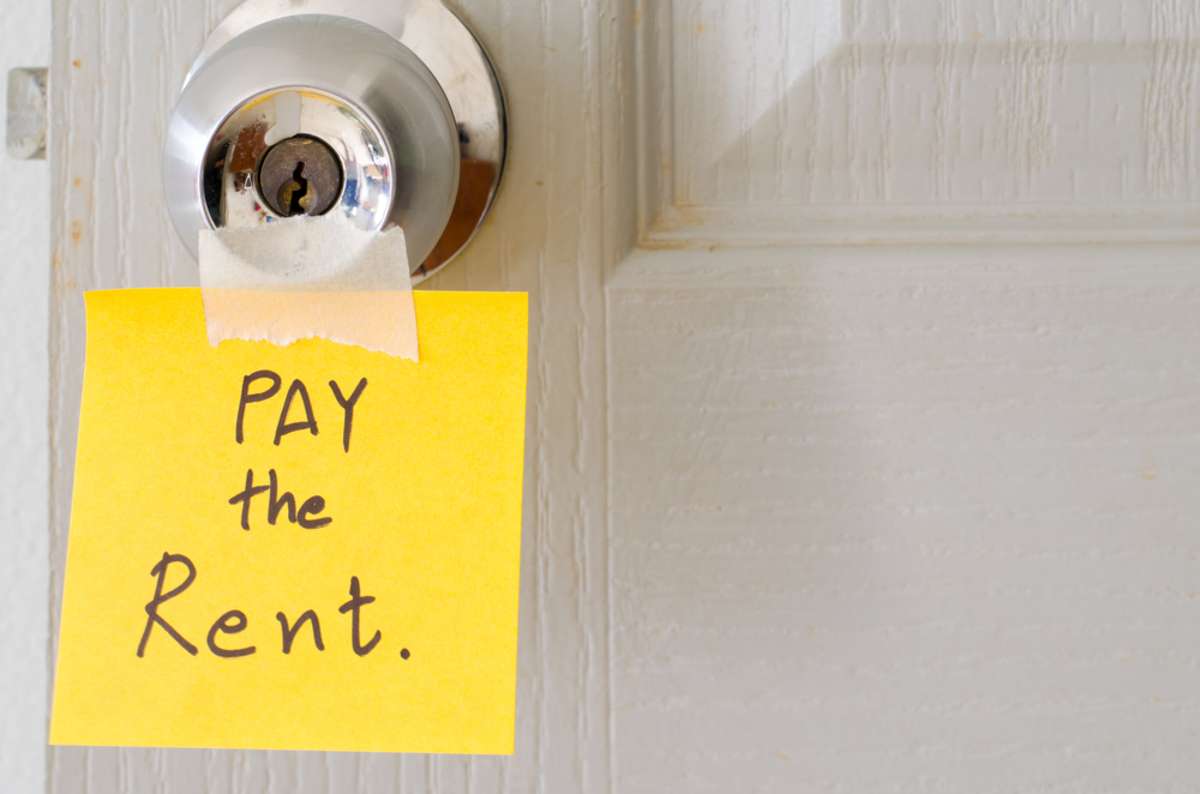Listen to the article
What To Do When Your Tenants Stop Paying
It's Business - What You Need to Know
Eviction is a dirty word in the real estate business, and often a topic that professionals aren't thrilled to discuss. After all, you didn't get into the rental business because eviction was the norm. So, what do you do when your tenants stop paying their rent and it's time to take more drastic measures? We have a few suggestions that can lead you down an easier path toward eviction.
It's bound to happen
If you got into the real estate business with the idea that you'd never have to evict someone, then you're living in a fantasy. Even if you haven't reached the point where you need to evict someone, it's better to be prepared than to think it'll never happen to you.
It's not personal, it's business
The most important factor that we want to stress about eviction is that you need to keep your mind firm on the business. When someone isn't paying you, they're truly stealing from you. Would you let anyone else in or around your life steal any tangible items from you? Of course not, which is why this situation shouldn't be any different. When a tenant stops paying their rent, it is a serious problem, and should be handled accordingly.
Evictions are specific to states
Need to know how to evict someone in Michigan? The Michigan Legislature has put together a handy packet of information on how to handle tenant and landlord negotiations, agreements, and discrepancies.
Don't instigate harsh personal actions towards the tenant
This means don't change the locks, don't shut off electricity or utilities, and certainly don't attempt to remove the belongings from the premises. This only makes you look like the enemy, and the law may not be around to protect you in these situations.
Try and solve issues outside of court
Evictions are messy problems to begin with, so whatever you can handle out of court is encouraged. This means taking precautionary measures in your landlord screening before even signing an agreement, can stop a lot of issues down the line. Additionally, make sure you speak to the tenants directly and see what you can do to work out an agreement. However, working with your tenants should still be handled in the best interest of your business, which means payment needs to appear within guidelines that you've set.
Step-by-Step Guide on How to Evict a Tenant
As we stated before, even if this something you're not currently dealing with, it is better to be prepared than stranded in this situation. Here's a complete step-by-step guide on how to properly evict a tenant out of your rental property.
Here's a complete step-by-step guide on how to properly evict a tenant out of your rental property.
1. Deliver eviction notice
The first thing you need to complete in order to begin the eviction process is to notify the tenant of the violated agreement. Depending on why your tenant is being evicted will change the tune of how this notice should be written. Additionally, check back with Part 1 to see exactly how Michigan stipulates that this notice should be handled.
- Non-payment eviction
This should be worded as a "pay or quit/vacate" notice, and sent directly to their home. Make sure to notate exactly how long they have to pay their rent before eviction, how much is due, and any fees that apply to their situation.
- Violating rental terms
This would be along the lines of noise complaints, adding another tenant without your notice, and other random issues that are against your policies. The notice should then stipulate that they need to "comply" within a certain amount of days, in order to not be evicted.
2. File Eviction with your Attorney/Court
When the allotted number of days have expired, make sure your attorney is given the following items:
- A copy of the lease agreement with your tenant
- A copy of the notice that you served to the tenant
- Any additional summary or documentation of your process with this eviction
He will then file this information with the court, and a court date will be assigned to you and the tenant. The tenant will then be given a lawsuit, typically delivered personally.
3. Attending the court date
Just like you were prepared with your attorney, there are a few additional pieces of documentation that you should have with you on our court date:
- The tenants application for your rental property
- The lease agreement
- Written documentation between you and the tenant
- The eviction notice
- The filed lawsuit
As long as the tenant shows up, the judge will hear both sides of the argument regarding the eviction. If you've documented this experience correctly, this shouldn't be an issue and they typically will rule in your favor.
4. Remove the tenant from your property
This should always be completed with the help of law enforcement. If the tenant has not left before their eviction date, make sure to call your local police in order to make things run as peacefully as possible. This will allow for you and your team to remove their belongings out of the property, and placed on the side of the road.
Overall, the eviction process is stressful and draining, but can be handled smoothly when proper steps are taken in advance. For more information on rental properties and how to deal with tenants, check out our other blogs!
Home: www.ownitdetroit.com







